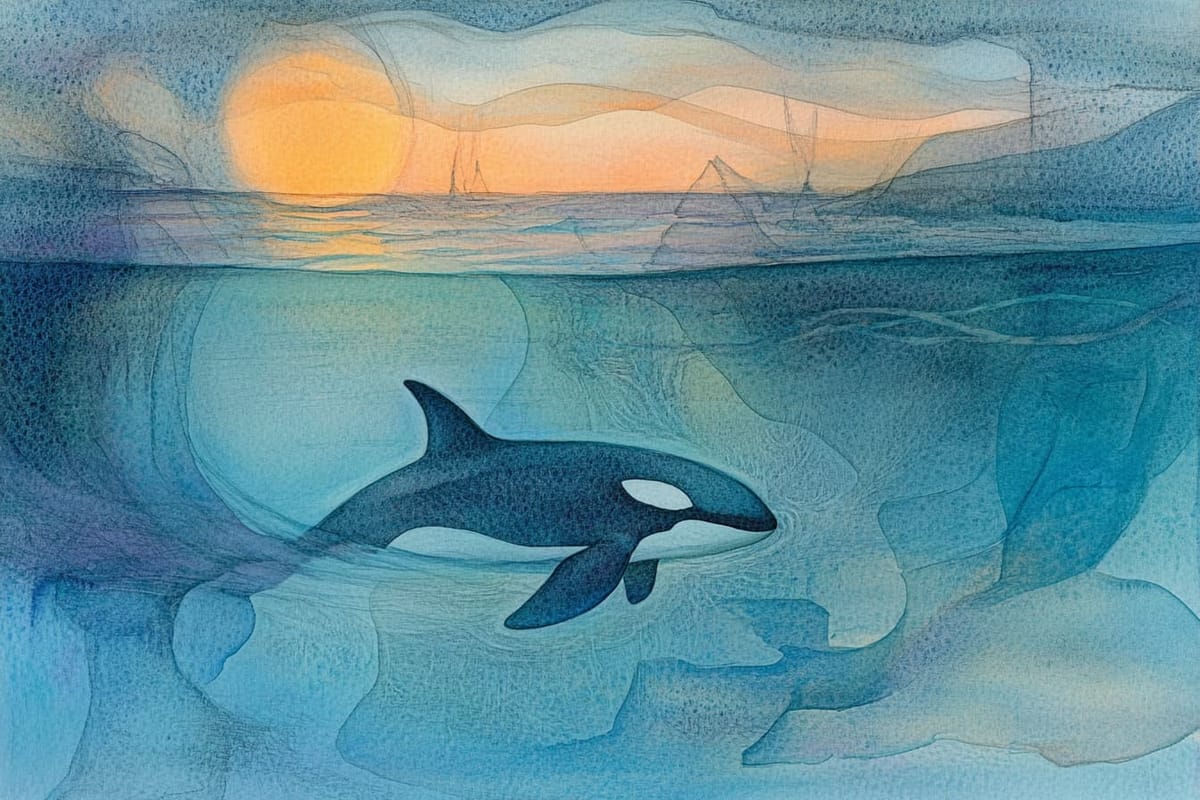To Mother Orca
If only humans could be as kind to grieving mothers.

I first heard about the grieving orca on Day 2. Her calf had died within a half an hour of being born, and the mother – J35, or Tahlequah as she is known – began carrying her baby, pushing him through the water, refusing to let him go.
That was Day 2. Now it is Day 7 and the world is watching.
Watching her ritual, hour after hour. If her calf slips, she has to dive to retrieve him so that she can continue to carry her baby.
To Mother Orca: You continue to carry your baby, for as long as you need. The last time, the time that she doesn’t go to pick up her calf when he falls, that will be the last time. The last time she held her baby.
Mother Orca’s family is encircling her, watching her. They are a witness to her mourning. How many times do families turn away because they don’t want to see the pain, or be close to it?
She doesn’t have to be concerned that anyone thinks that she should “move on.” That she should “be over it” by now. Researchers are concerned for her health – that she might not be eating – but no one is saying that she shouldn’t be grieving. They are acknowledging how must pain she must be in, to continue to carry her baby day after day after day.
I have friends who held their babies after they had died. Gave them baths. Dressed them. Had family visit and took photos. And at some point, they had to put their child down for the last time and say goodbye.
Scattering Nelle and Iris’s ashes was like that for me. They were no longer in my house, in the tiny white box that came back from the funeral home. With Nelle, I remember being unable to get up after we scattered her ashes. I sat and sat and sat. Because getting up from that place and walking away felt like leaving her behind.
The team monitoring Mother Orca is committed to being with her through her grief. Giving her space and watching. Staying with her, supporting her.
If only humans could be as kind to grieving mothers.
To Mother Orca: You know what you need. Your heart is broken. That’s your baby, and you should keep him by your side until you are ready to let him go.
